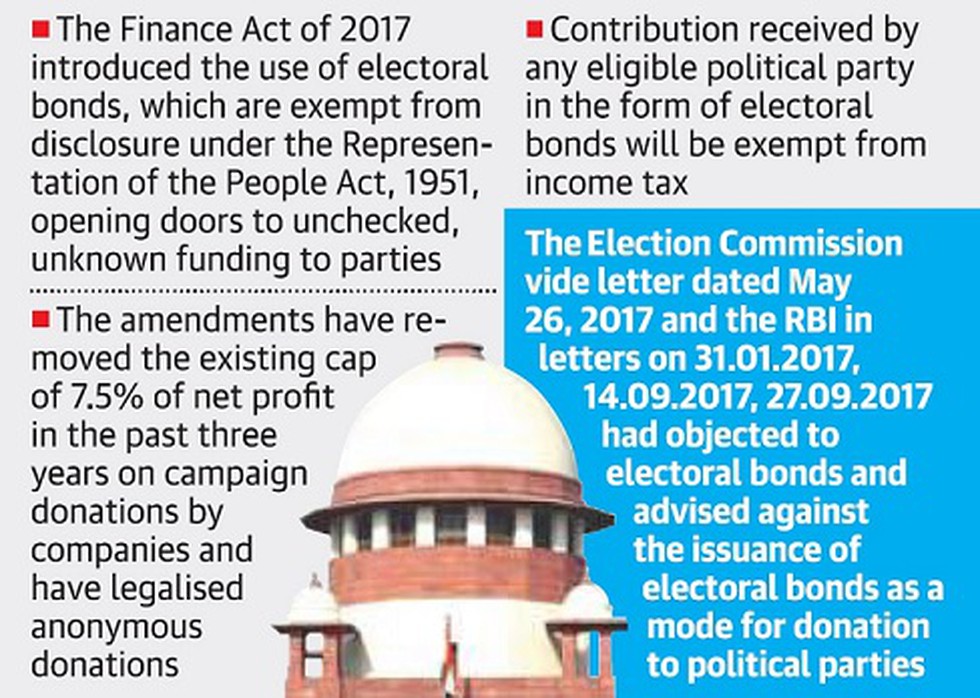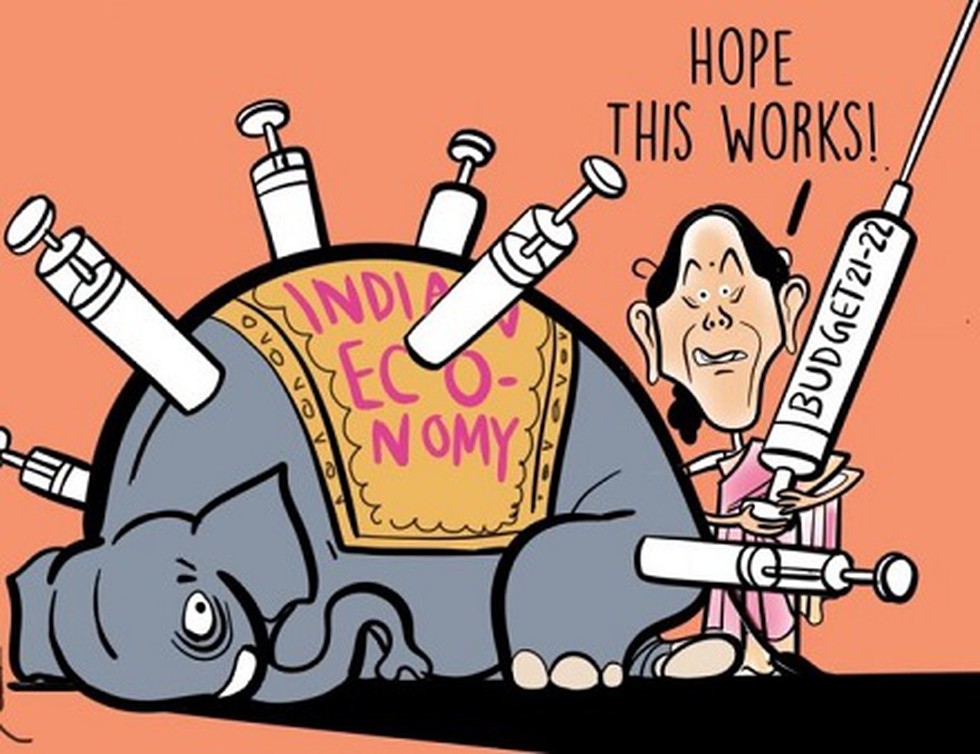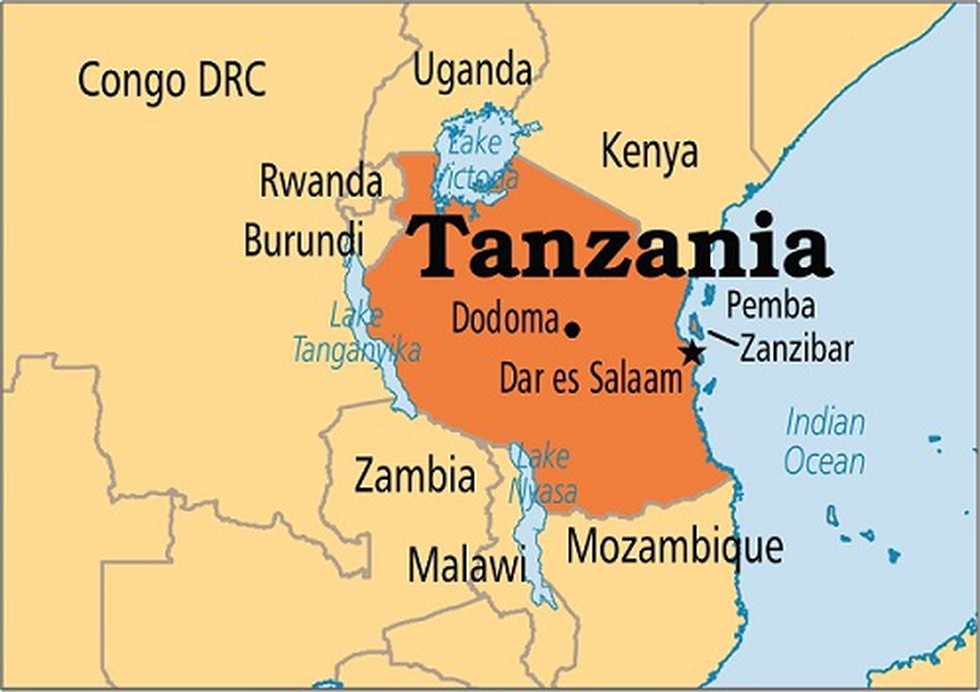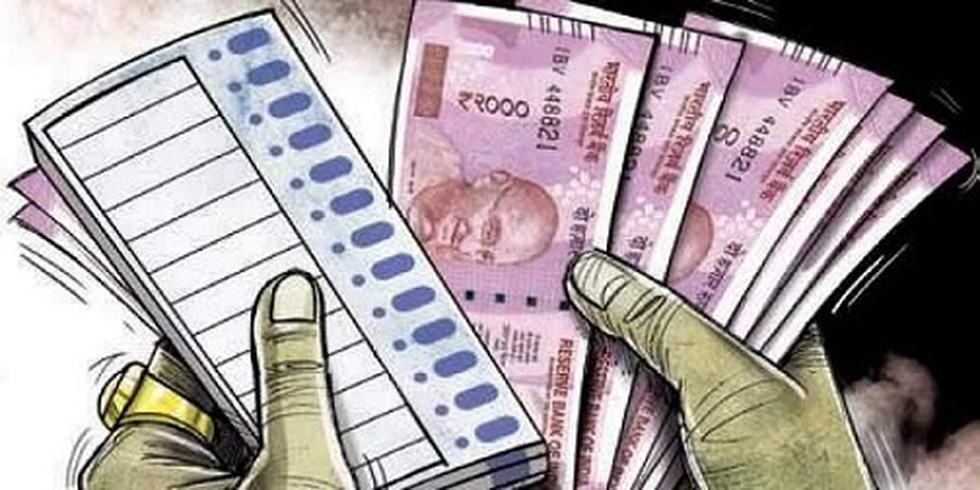ELECTORAL BONDS
Chief Justice of India agreed to urgently hear a plea by NGO Association for Democratic Reforms to stay the sale of a new set of electoral bonds on April 1, before the Assembly elections in crucial States such as West Bengal and Tamil Nadu.

Arguments by petition:
- The Reserve Bank of India (RBI) and the Election Commission had both said that the sale of electoral bonds had become an avenue for shell corporations and entities to park illicit money and even proceeds of bribes with political parties.
- Data obtained through RTI has shown that illegal sale windows have been opened in the past to benefit certain political parties.
- There is a serious apprehension that any further sale of electoral bonds before the upcoming State elections in West Bengal, Tamil Nadu, Kerala and Assam would further increase illegal and illicit funding of political parties through shell companies.
- The scheme had “opened doors to unlimited political donations, even from foreign companies, thereby legitimising electoral corruption at a huge scale, while at the same time ensuring complete non-transparency in political funding”.
ROAD TRANSPORT
India will implement a GPS-based toll collection system and do away with all toll booths within a year, Union Minister for Road Transport and Highways Nitin Gadkari informed the Lok Sabha.

GPS-based toll collection system:
- It means that toll collection will happen via GPS. The money will be collected based on GPS imaging of vehicles.
- He said 93% of the vehicles were paying toll using FASTag — a system that facilitates electronic payment of fee at toll plazas seamlessly — but the remaining 7% had still not adopted it despite paying double the toll.
Vehicle Scrapping Policy:
- He also shared details of the vehicle scrapping policy, first announced in the Union Budget for 2021-22, according to which the automobile industry in India will see a jump in turnover to ₹10 lakh crore from ₹4.5 lakh crore.
- The new policy provides for fitness tests after the completion of 20 years in the case of privately owned vehicles and 15 years in the case of commercial vehicles.
- Any vehicle that fails the fitness test or does not manage renewal of its registration certificate may be declared as an End of Life Vehicle.
- The policy will kick in for government vehicles from April 1, 2022. Mandatory fitness testing for heavy commercial vehicles will start from April 1, 2023, and for all other categories of vehicles, including personal vehicles, it will start in phases from June 1, 2024.
THE INSURANCE (AMENDMENT) BILL, 2021
The Rajya Sabha passed the Insurance Amendment Bill, 2021 which increases the maximum foreign investment allowed in an insurance company from 49% to 74%.

About:
- The Bill amends the Insurance Act, 1938 to increase the maximum foreign investment allowed in an Indian insurance company.
- The Act provides the framework for functioning of insurance businesses and regulates the relationship between an insurer, its policyholders, its shareholders, and the regulator (the Insurance Regulatory and Development Authority of India).
Foreign investment:
- The Act allows foreign investors to hold up to 49% of the capital in an Indian insurance company, which must be owned and controlled by an Indian entity.
- The Bill increases the limit on foreign investment in an Indian insurance company from 49% to 74%, and removes restrictions on ownership and control.
- However, such foreign investment may be subject to additional conditions as prescribed by the central government.
Investment of assets:
- The Act requires insurers to hold a minimum investment in assets which would be sufficient to clear their insurance claim liabilities.
- If the insurer is incorporated or domiciled outside India, such assets must be held in India in a trust and vested with trustees who must be residents of India.
- The Act specifies in an explanation that this will also apply to an insurer incorporated in India, in which at least: (i) 33% capital is owned by investors domiciled outside India, or (ii) 33% of the members of the governing body are domiciled outside India.
- The Bill removes this explanation.
SUPPLEMENTARY DEMAND FOR GRANTS
The Lok Sabha on Thursday passed the supplementary demand for grants (second batch for 2020-21).

What happens if the government needs to spend additional money during the year?
- During the year, if the government needs to spend any money which has not been approved by Parliament or needs to incur additional expenditure, it can introduce Supplementary Demands for Grants.
- Typically, Supplementary Demands for Grants are passed in every Parliament session.
- Article 115 of the constitution provides for Supplementary, additional or excess grants.
- Note that, unlike the Demands for Grants presented with the budget, these supplementary demands have never been scrutinised by Standing Committees.
TEACHER EDUCATION INSTITUTIONS (TEIs)
Azim Premji University released the First volume on teachers & teacher education. It explore the landscape of Teacher Education Institutions (TEIs) in the country, corruption in private TEIs, the support system needed for teachers and the problem of those who are on contract.

Key findings of report:
- With as many as nine million teachers in around 1.5 million schools in India, the quality of education imparted to aspiring teachers is equally important.
- Of the 17,503 TEIs in India, more than 90% are privately owned, stand-alone institutions, offering single programmes localised in certain geographies. Four States, Uttar Pradesh, Rajasthan, Maharashtra and Tamil Nadu, account for 54% of all TEIs in the country. Only 12 States/UTs have at least one TEI in each district.
- Equally worrying is the level of corruption. There are many substandard, dysfunctional TEIs functioning as ‘commercial shops’.
- TEIs deliberately neglected basic curricular requirements. Classes are neither conducted seriously nor taken seriously by students. Almost all private TEIs allowed students with shortage of attendance to appear for examinations.
- There is increasing prevalence of contract teachers, who are recruited for short periods on inadequate salaries with little or no benefits. This had caused long-term damage to not just the teaching profession, but has also affected student learning.
TEACHERS CONTESTING ELECTIONS
The Supreme Court stayed a Kerala High Court decision barring aided school teachers and non-teaching staff from contesting Assembly elections or engaging in political activities.

About:
- It issued notice to the Kerala government while staying the High Court verdict in February.
- The High Court had declared Section 2 (IV) of the Legislative Assembly (Removal of Disqualifications) Act of 1951, which allowed aided school teachers to become legislators, as unconstitutional.
- Petitioners in the High Court had challenged the 1951 law, saying their participation in politics would affect the quality of education.
- They had argued in the HC that since Kerala Government Servants Conduct Rules prohibits government school teachers from taking part in political activities, the rule should extend to school teachers also.
- The government had however contended in the High Court that as per a government order issued in 1967, the teachers of aided schools had political rights. There were no rules or Act prohibiting them from participating in political activities or contesting polls.
PRITZKER ARCHITECTURE PRIZE
Social housing architects Anne Lacaton and Jean-Philippe Vassal, founders of French studio Lacaton & Vassal, have been named the 2021 winners of the Pritzker Architecture Prize.

About:
- French architects Lacaton and Vassal were named the winners of the award for their body of work that "reflects architecture's democratic spirit" and their "commitment to a restorative architecture".
- Their recognition marks the first time a French female architect has won the prize, with Lacaton becoming the sixth woman to receive the award since it was established in 1979.
JOHN MAGUFULI
Tanzania was in mourning over the sudden death of President John Magufuli, an authoritarian leader and COVID-19 sceptic.

About:
- John Pombe Joseph Magufuli (1959 – 2021) was a Tanzanian politician who served as the fifth President of Tanzania from 2015 until his death in 2021.
- Magufuli was known for promoting misinformation about COVID-19 during his leadership over the pandemic in Tanzania.
- His death on 17 March 2021 was attributed to a long-standing heart issue by the government.
BIHAR LOKAYUKTA (AMENDMENT) BILL, 2021
The Bihar Assembly passed the Bihar Lokayukta (Amendment) Bill, 2021 that proposes to punish people filing false cases before the anti- corruption ombudsman body to prevent any waste of time or misuse of the institution.

Background:
- Lokayukta carries out expeditious investigation and prosecution relating to allegations involving corruption against public servants of all grades.
- The proposed legislation has been brought keeping in view the misuse of the Lokayukta institution in false cases.
- It was proposed by the Lokayukta itself that there should be a provision for punishing people filing false cases before it. The Lokayukta acts of other States have the provision of punitive action against such erring persons.
Salient features:
- The Bill proposes that a case against a person filing a false case can be filed in the district court.
- If the person is found guilty of it or for giving false testimony or filed wrong affidavit, he/she will be sentenced to a jail term of upto three years besides a provision for fine
BALANCE SHEETS OF POLITICAL PARTIES
According to a report released by the Association for Democratic Reforms (ADR), BJP tops in declared assets.

About:
- Over 54% of the assets declared by seven national parties for 2018-2019 belonged to the Bharatiya Janata Party, while the Congress accounted for 58% of all liabilities reported by the parties.
- The ADR’s analysis of the balance sheets of the national parties at that time — the BJP, the Congress, the Bahujan Samaj Party, the Communist Party of India, the Communist Party of India-Marxist and the All-India Trinamool Congress — showed assets of ₹5,349.25 crore.
- Forty-one regional parties declared assets of ₹2,023.71 crore that year. Of the national parties, the BJP declared assets of ₹2,904.18 crore or 54.29% of the total assets of the national parties.
Comments
Post a Comment